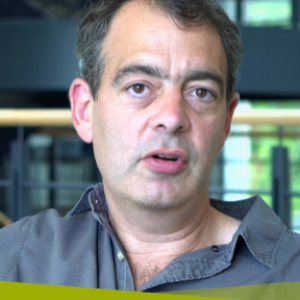
3 days ago
David Runciman - Young people and democracy
David Runciman, Professor of Politics at the University of Cambridge, examines the role and representation of young people in democracy.
About David Runciman
"I’m a Professor of Politics at Cambridge University and Fellow of the Royal Society of Literature. I explore the history of politics and political ideas, and democracy.
My interest is in the history of politics and political ideas and particularly, democracy. Where does it comes from? How different is our democracy from democracy in the past? What might it become in the future? In parallel to my research, writing and teaching work, I hosted a weekly podcast called Talking Politics with 300 episodes between 2016 and 2022."
A widening generation divide
When we look at the question of young people in democracy and the generation divide, we see two things going on. One is that the generation divide is widening. It used to be the case that the big division in democratic politics was on the basis of class or income. To know how people voted and what political attitudes they were likely to have, the first question you’d want to ask was what class that person comes from. Or how much money that person earns. Now, you discover much more by finding out someone’s age. People under the age of 35 tend to have political views, voting patterns, preferences on big questions that are very different from people over the age of 50 and, particularly, people over the age of 65. We see that gap widening.
Take the example of the UK. Young people were overwhelmingly against Brexit, while older people were overwhelmingly in favour of it. At the last UK general election, young people voted overwhelmingly for Jeremy Corbyn and the Labour Party. If only people under the age of 30 had been allowed to vote, Corbyn would be prime minister, with the biggest majority in British political history. People over the age of 65 voted overwhelmingly for Boris Johnson and the Conservatives. And those two votes show the other thing that’s going on, which is a demographic shift.
Key Points
• The generation divide in modern politics is constantly widening.
• The old and young have opposing opinions on many important political questions, but the democratic system is skewed towards the old.
• Giving children the vote is neither a radical nor dangerous idea.
No comments yet. Be the first to say something!